★★★
“Neither claim on the top left of the poster are accurate.”
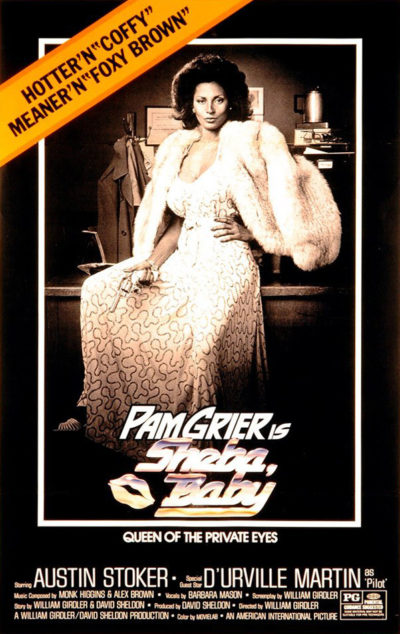 After the success of Coffy and Foxy Brown, Pam Grier continued her career with this not dissimilar blaxploitation flick, albeit one of a more restrained approach. Indeed, this received a ‘PG’ rating at the time of its release in April 1975, something modern ears would likely find shocking, considering the copious use of certain racial epithets deployed here. She plays private detective Sheba Shayne, who returns to her home town of Louisville from Chicago, after getting a telegram from her father’s business partner, Brick Williams (Stoker). He warns that her father (Challenger) is taking on some rough customers who are trying to force him into selling his company. Sheba, naturally, is having none of it, and when the police refuse to do much, starts working her way up the food-chain of scumbags, to the apex predator of The Man, who in this incarnation is Shark (Merrifield).
After the success of Coffy and Foxy Brown, Pam Grier continued her career with this not dissimilar blaxploitation flick, albeit one of a more restrained approach. Indeed, this received a ‘PG’ rating at the time of its release in April 1975, something modern ears would likely find shocking, considering the copious use of certain racial epithets deployed here. She plays private detective Sheba Shayne, who returns to her home town of Louisville from Chicago, after getting a telegram from her father’s business partner, Brick Williams (Stoker). He warns that her father (Challenger) is taking on some rough customers who are trying to force him into selling his company. Sheba, naturally, is having none of it, and when the police refuse to do much, starts working her way up the food-chain of scumbags, to the apex predator of The Man, who in this incarnation is Shark (Merrifield).
There’s not much here which could be described as particularly new or exciting. Indeed, I almost passed on the movie entirely, thinking I’d already seen it, but it appears I was confusing this with Friday Foster. That’s the thing about Grier’s career: she received only limited opportunities to break out from the ghetto of blaxploitation, and to some degree, her output is much of a muchness. Though at this point, there were precious few other areas of English-speaking media which allowed women to kick butt in the way she did. We were still in the era before Charlie’s Angels and Wonder Woman, albeit just – WW started the November after Sheba came out, and CA the following year.
For now, Grier was ploughing her own furrow in the vanguard of action heroines, and despite the generic nature of this offering (it was the final movie of Pam’s contract with American International Pictures), still represents okay value for money. It does gloss over the fact that Sheba’s Dad is little more than a kinder, gentler loan-shark, operating what appears to be a payday finance company, of the kind often described as “predatory” these days. It’s not even clear quite why Shark is so keen to take over the business. Fortunately, before becoming a Chicago PI, seems Sheba was a local cop. She still has some of the connections from that time – as a bonus, without having to worry about niceties like ‘due process’ or ‘police brutality’.
Even with the relatively low-key sex ‘n’ violence allowed by the PG rating [which would be “almost none” and “light”, compared to Grier’s previous offerings], it’s still fun to watch her in action. The highlight is likely her encounter with a “street entrepreneur” wearing a suit which looks more like an optical illusion. After he runs off, rather than answer her questions, she simply gets into the back of his pimpmobile and waits for him to return. It builds toward her sneaking onto Shark’s boat, jumping off it, sneaking back on, getting caught, escaping, and eventually chasing him through the Southern bayou on a jetski. It seems to have strayed in from Live and Let Die, and the cops seem remarkably unfazed by Sheba behaving in a manner more befitting Moby Dick, shall we say.
As noted at the top, this falls short of Grier’s best work, though is still better than Foster. It’s workmanlike, rather than impressive, and the restraint necessary for the certificate probably works against it. The words “family-friendly” and “blaxploitation” are clearly better off kept apart from each other, I suspect.
Dir: William Girdler
Star: Pam Grier, Austin Stoker, Rudy Challenger, Dick Merrifield





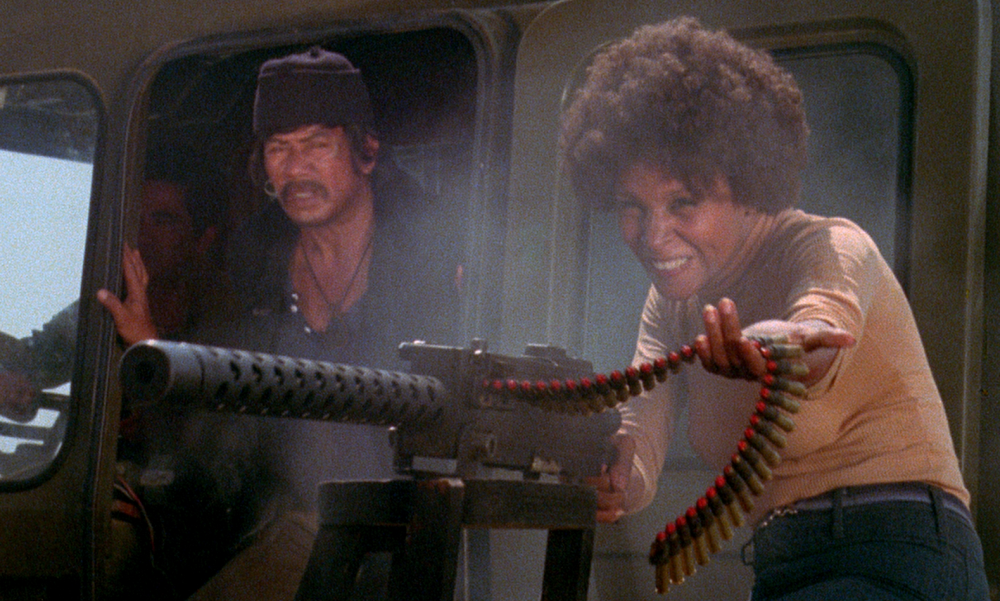 Both Bell and Katon had worked with Santiago before, in
Both Bell and Katon had worked with Santiago before, in 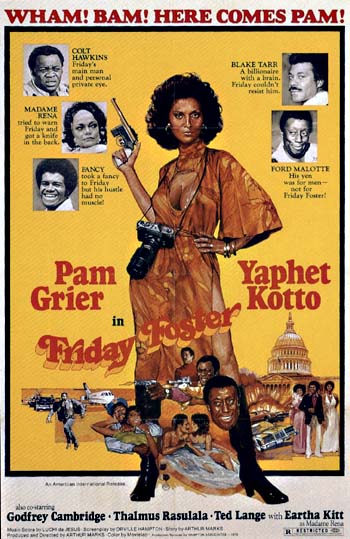
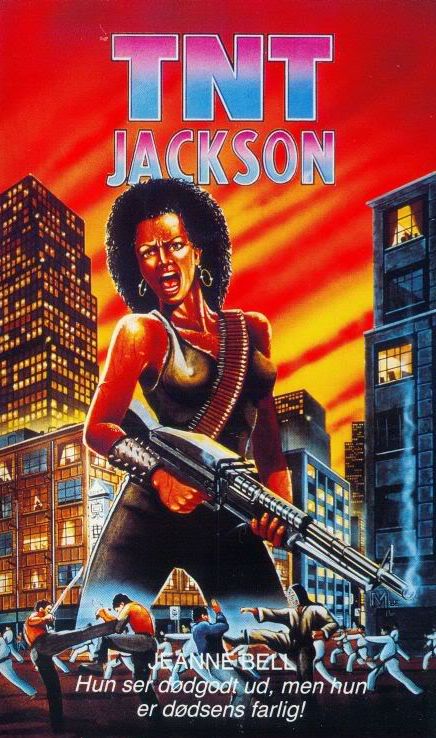

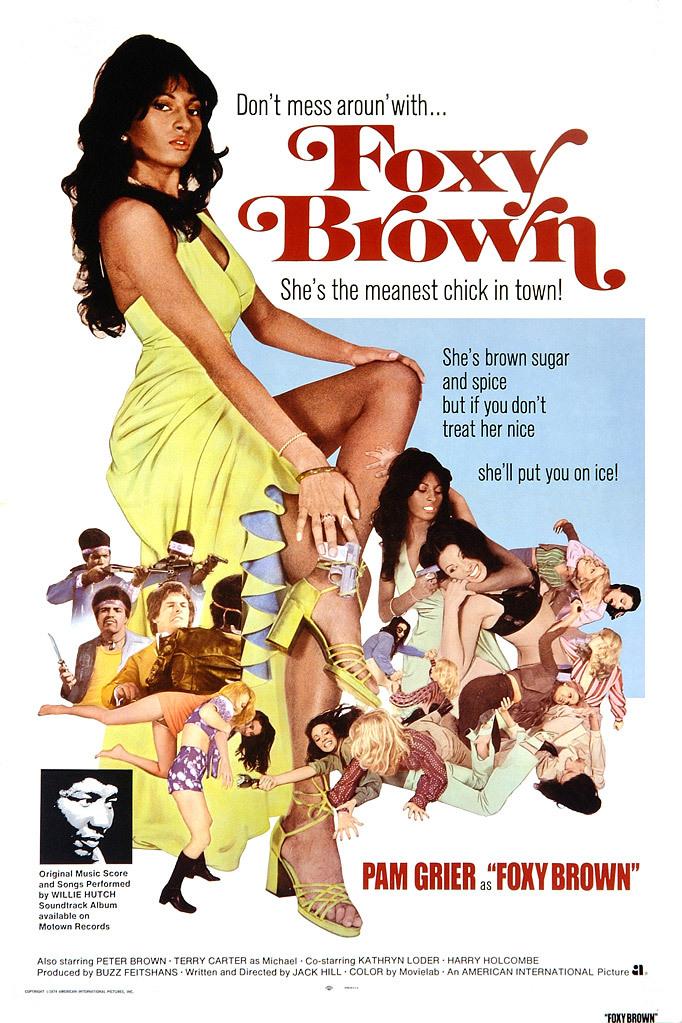
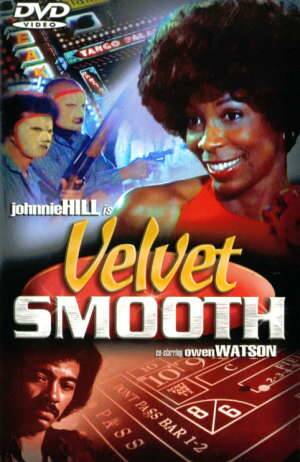 Let’s be perfectly clear about this: at least one, possibly more, of the points awarded to this movie only apply if you, like us, are connoisseurs of the trash aesthetic. If you delight in bad acting, poor action and technical ineptness, this is for you. Otherwise…consider yourself warned. Not to be confused with Jeannie TNT Jackson Bell, this was Johnnie Hill’s only film – and when you’ve seen it, you’ll understand why. She plays Velvet, a private investigator brought in, along with her two female sidekicks (also adept in martial arts, even if we are redefining the word “adept” here), when someone starts encroaching on a crime lord’s territory. Who is behind this? And who is behind them?
Let’s be perfectly clear about this: at least one, possibly more, of the points awarded to this movie only apply if you, like us, are connoisseurs of the trash aesthetic. If you delight in bad acting, poor action and technical ineptness, this is for you. Otherwise…consider yourself warned. Not to be confused with Jeannie TNT Jackson Bell, this was Johnnie Hill’s only film – and when you’ve seen it, you’ll understand why. She plays Velvet, a private investigator brought in, along with her two female sidekicks (also adept in martial arts, even if we are redefining the word “adept” here), when someone starts encroaching on a crime lord’s territory. Who is behind this? And who is behind them?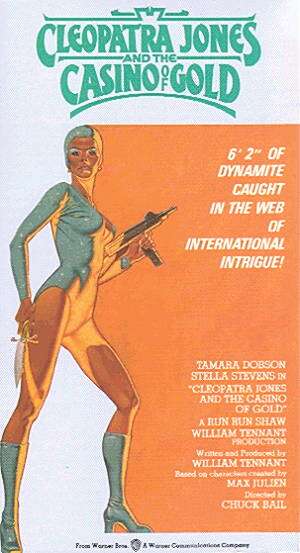 In the 70’s, Shaw Brothers hooked up with Western studios, to various effect, e.g. the inept Dracula and the Seven Golden Vampires, made in conjunction with Hammer. Co-production works rather better here, lending genuine exotic locations, and an endless array of stuntmen, prepared to hurl themselves off things. Jones heads to HK after a couple of her minions are captured by the evil, lesbian, sword-wielding Dragon Lady (Stevens), intent on bringing down the operation, with a little local assistance.
In the 70’s, Shaw Brothers hooked up with Western studios, to various effect, e.g. the inept Dracula and the Seven Golden Vampires, made in conjunction with Hammer. Co-production works rather better here, lending genuine exotic locations, and an endless array of stuntmen, prepared to hurl themselves off things. Jones heads to HK after a couple of her minions are captured by the evil, lesbian, sword-wielding Dragon Lady (Stevens), intent on bringing down the operation, with a little local assistance.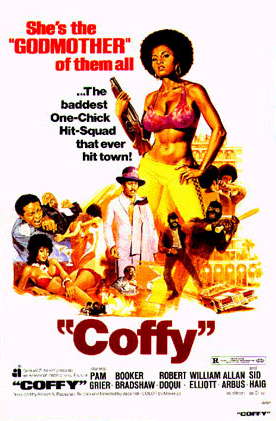 Neither star Grier nor director Hill were exactly strangers to the world of exploitation when they made this, but their combination here created a whole new subgenre, crossing action heroineism with black cinema. Following her would come Foxy Brown, Cleopatra Jones and the rest, but let it be said, Coffy was the first of any significance.
Neither star Grier nor director Hill were exactly strangers to the world of exploitation when they made this, but their combination here created a whole new subgenre, crossing action heroineism with black cinema. Following her would come Foxy Brown, Cleopatra Jones and the rest, but let it be said, Coffy was the first of any significance.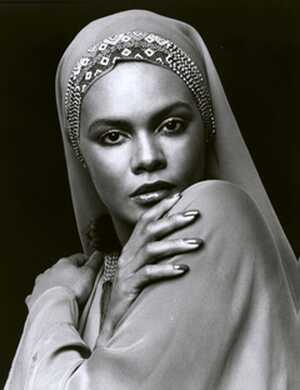 The success of independent blaxploitation films inevitably let to the major studios trying to cash in, and this applied to both sexes. Jones was their response, with 6’2″ Tamara Dobson over-filling Pam Grier’s shoes, as the special agent taking on dyke drug queen Mama (Winters, chewing scenery atrociously) and police corruption, at home and abroad (“Turkey”, supposedly – I wasn’t convinced).
The success of independent blaxploitation films inevitably let to the major studios trying to cash in, and this applied to both sexes. Jones was their response, with 6’2″ Tamara Dobson over-filling Pam Grier’s shoes, as the special agent taking on dyke drug queen Mama (Winters, chewing scenery atrociously) and police corruption, at home and abroad (“Turkey”, supposedly – I wasn’t convinced).